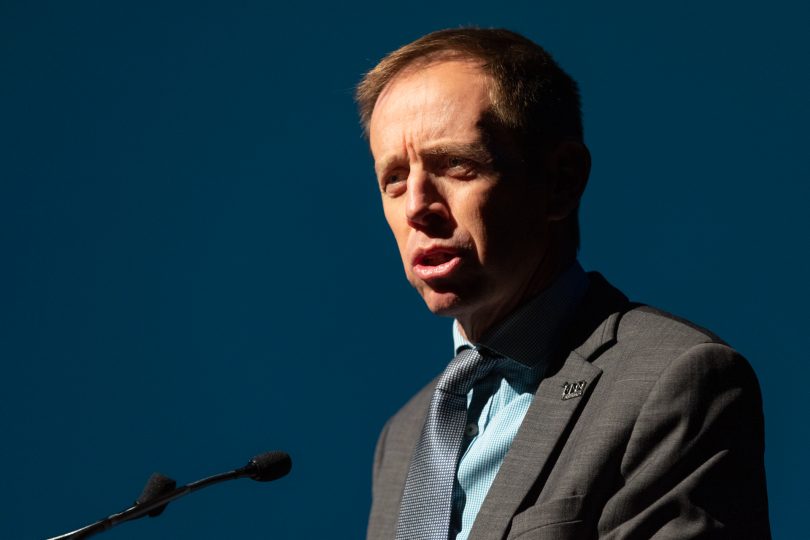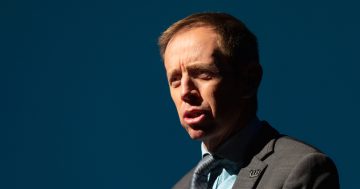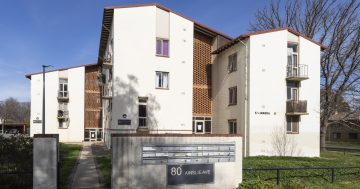
Minister for Energy and Emissions Reduction, Shane Rattenbury: Government work to meet ambitious targets needs to measure the impact of carbon emissions. Photo: Michelle Kroll.
A consultant will provide the ACT Government with a report on the social cost of carbon emissions to guide its policymaking on reducing greenhouse gas emissions to help avert the effects of global warming and climate change.
The information will help the government weigh the costs and benefits of its decisions, which require a value for CO2 emissions to gauge whether a certain policy is worth pursuing.
Rovingstone Advisory has been contracted to provide the Environment Planning and Sustainable Development Directorate a review of the literature on the existing theory and practice of applying a social cost of carbon in comparable economies, such as the US and Europe.
EPSDD also requires an estimate of an appropriate social cost of carbon to apply in the ACT to 2045, the target date for achieving zero net emissions.
It also wants to know the limitations in practice of the social cost of carbon, and emerging scientific evidence that could be considered in future estimates, including the impacts of bushfire smoke and heatwaves.
Minister for Energy and Emissions Reduction Shane Rattenbury said the government had set an ambitious emissions reduction target to 2045, with interim targets of reducing emissions by 50-60 per cent (below 1990 levels) by 2025, 65-75 per cent by 2030 and 90-95 per cent by 2040.
“These targets will require significant investment in emissions reduction programs and policies,” he said. “To measure the costs and benefits of these initiatives, and to prioritise actions, we want to ascertain what is an appropriate measure of the true cost of carbon emissions.”
Mr Rattenbury said the social cost of carbon represented a comprehensive dollar estimate of climate change damages resulting from the release of one tonne of greenhouse gas emissions.
He said the report, to be released publicly, would provide advice on the application and limitations of a social cost of carbon and an estimated social cost of carbon for the ACT based on best practice and experience globally.
Mr Rattenbury said the project fitted with the government’s commitment to using well-being indicators to assess its actions, which helps ensure decision-making addresses the community’s broader needs, not just market prices.
He said the work would allow the government to adopt an appropriate social cost of carbon and understand when and how it would need to be adjusted.
“Planning and investment decisions taken today have costs and benefits over the long term to 2045,” he said.
The cost estimate will involve two discount rates, which Mr Rattenbury said were required for robust and accurate cost-benefit analysis for government decision making.
“Discount rates are applied to future monetary costs or benefits to express them in today’s dollar terms (present value), which allows for a comparison of effects that happen in different times,” he said.
“Cost-benefit analysis guidance for ACT Government decision-making generally requires a 7 per cent discount rate to be applied,” he said.
A final report is due on 11 March 2021. Rovingstone Advisory is being paid $31,680 for the work.





















